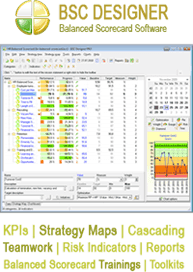How Efficiency Metrics Build Productivity
Have you seen a company running aimlessly around without a care for its employees and clients as it only intends to gain more profit? Well, this is not one good mission in putting up a business at all. The success of every company lies on the efficiency of the inter-related aspects inside the company. Thus, the need to implement efficiency metrics.
To begin with, there are different metrics of efficiency that a company should think about and carefully plan for. One of them is the office work processing time. Office work time must be utilized to produce more or to finish more work, rather than waste it on unimportant matters. Staff or employee ratio is also another metric to check on. If there are enough members on your workforce, then more work will be done. The volume of tasks must be equal to the number of people working on them. Next is the result of surveys on customer satisfaction. This is also one factor that a company should watch out for. In order to see the efficiency of the whole business operation in gaining revenue is make it to a point of making sure clients are satisfied with its outputs. Metrics can be formulated according to this need.
Now, these elements must be synchronized and must have a common end result, which is to build effectiveness and efficiency in the work procedures. So, in designing metrics for the mentioned elements, accurate data collection and sampling methods, scaling, and calculating must be of high standards to be able to level or compare the individuals in each department effectively and easily. Standardized metrics are now easy to manage and assess since there is only one basis and process. In this way, managers can now identify where to expand good practices and habits, develop or improve the poor areas of efficiency, and how to compare their own company to others in terms of productivity.
Once the company is able to determine these elements and evaluate them accordingly, the productivity of each employee, and even the whole company, is comparably better than the time before the establishment of these metrics that focus on the element of efficiency. With the implementation of these metrics at hand, managers will now have a unified way of keeping track of every activity in and out of the organization. This is particularly important when troubleshooting faulty system procedures fast. Of course, a company would not put up a business where low production outputs and high production costs are perceived. Who would want to pay for hundreds of employees but only earn half of the wage fee in return, right?
Efficiency metrics have certainly evolved and have made their way into the business industry, thus making any sort of job easier to handle and more accurate to quantify or measure. Since it is a busy world out there, we cannot keep track of the things to be maintained on track as well as the ones that are to be eliminated. To achieve success and implement well-managed operation system, all decisions have to be based on metrics that focus on efficiency. This way, the revenue of the company would be prioritized without having to compromise the employee morale of the members of your workforce.
—
If you are interested in Efficiency Metrics, check this web-site to learn more about efficiency kpi.


